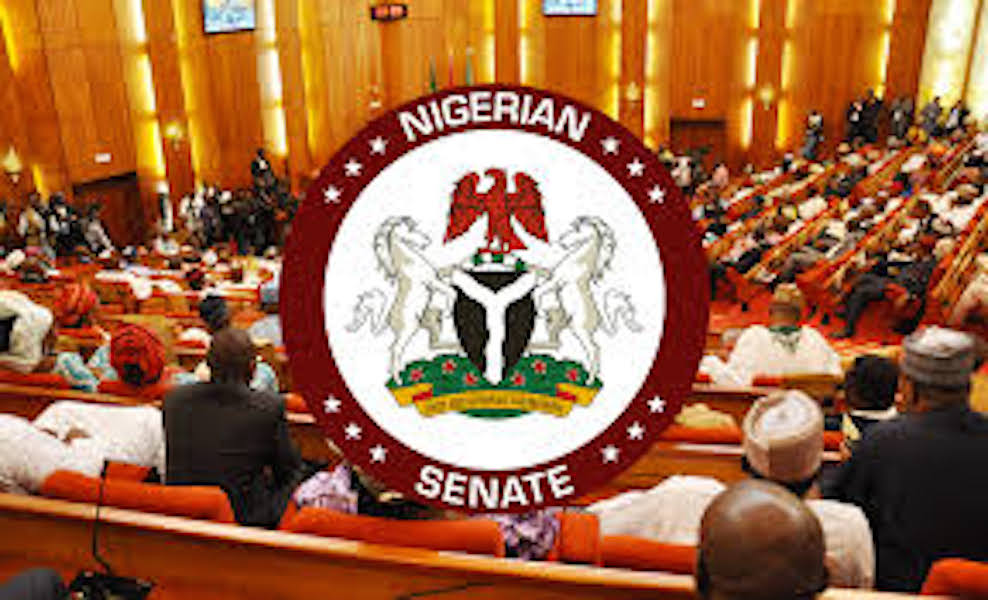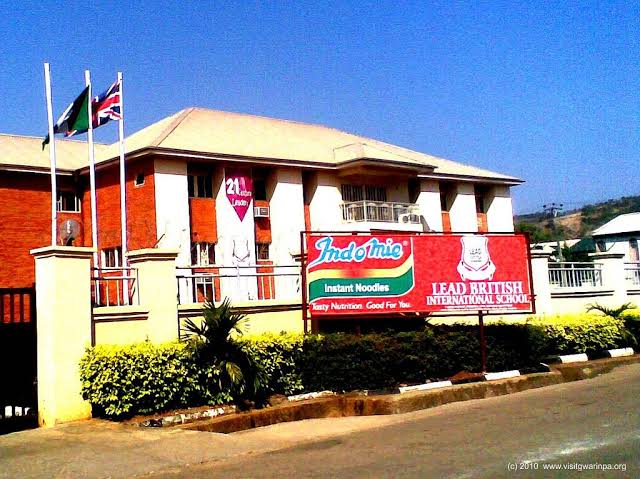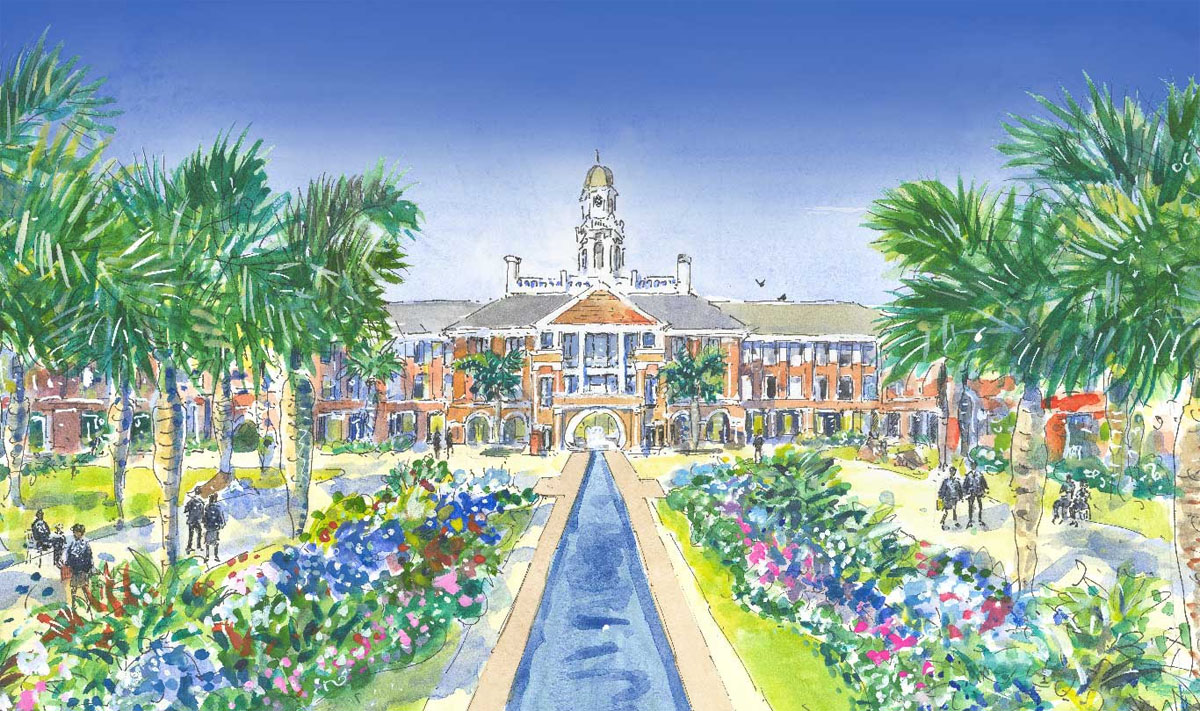Education
National Assembly proposes 235 new tertiary institutions

The National Assembly is considering bills seeking for the establishment of 235 new federal universities, polytechnics, colleges of education and specialised institutions despite poor funding of the existing federal tertiary institutions.
The bills are currently at different stages of legislative activities at the National Assembly.
Checks by Daily Trust show that the Federal Government currently has 119 universities, polytechnics, colleges of education and monotechnics.
Various labour unions in the tertiary institutions and the federal government often haggle over salaries and other school running costs, hence frequent strikes by staff of the institutions.
In 2020, a strike by the Academic Staff Union of Universities (ASUU) over a payroll system and condition of the universities lasted nine months.
Not long after ASUU ended its strike, another union, the Joint Action Committee (JAC) of non-teaching staff unions of universities, which comprises Senior Staff Association of Nigerian Universities (SSANU) and Non-Academic Staff Union of Universities (NASU), declared a nationwide industrial action over salaries.
Despite the funding anomalies, there are over 200 bills seeking to establish tertiary institutions in different states of the federation before the National Assembly.
The analysis of such bills under the 9th National Assembly shows that out of the 235 bills for the establishment of the institutions, 111 are being considered in the senate and 124 in the House of Representatives.
Out of the 111 bills in the senate, 40 are for the establishment of universities; eight for polytechnics; while 35 and 28 are for colleges of education and specialised institutes respectively.
A further breakdown of the 40 proposed universities indicate that all but one are specialised institutions. Of the specialised universities, technology tops the list with 10, closely followed by agriculture with eight. Education has six, medical and health sciences have four and maritime two.
There are also bills seeking the establishment of one university each for sports, environment, history and archaeology, entrepreneurship, food technology, steel, creative arts, film and broadcasting, as well as aerospace and aeronautics.
The senate is also considering bills to establish 21 colleges of education; five colleges of agriculture and four colleges of forestry. Health science/midwifery has three bills and one each for crop science, maritime studies and naval architecture.
For the proposed institutes, Information and Communication Technology (ICT) tops the list with seven; followed by fisheries and aquaculture, and mines and geological studies, which have two each.
Other specialised institutes being proposed are those of business, administration, stockbrokers, facility management, mediation, security, border studies, building and road research, metallurgy, cancer research, development, directors, power engineers, environment, bitumen and local government and public administration; one each.
Education
Senate backs education minister on 18-year entry age into varsities

Senate backs education minister on 18-year entry age into varsities
Members of Nigeria’s Senate endorsed the federal government’s decision to raise the minimum admission age to 18 years old.
Recall that the Minister of Education, Prof. Tahir Mamman, said on Monday that the entry age for higher institutions was 18 years old and cautioned parents not to force their children who are not yet of age to enroll.
The support was made public on Tuesday in Abuja when the Chairman of the Senate Committee on Tertiary Institutions and TETFund, Sen Muntari Dandutse, led other members of the committee as well as his House of Representatives counterpart to witness the ongoing UTME.
READ ALSO:
- Nollywood actor Zulu Adigwe is dead
- Produce copy of invitation to me, Bello challenges EFCC
- Ronaldo playing in Saudi league for money like me – Ighalo
Speaking with journalists after the exercise , the Senator representing Kogi West Senatorial District and member of committee, Sen Sunday Karimi, said the Senate has nothing against the proposal by the Minister of Education.
He noted that by restricting admission to students at least 12 years old before secondary school, the government aims to ensure that students possess the cognitive and emotional readiness necessary to navigate the challenges of secondary education effectively.
“By the time a student who entered into secondary school at the age of 12 years completes his secondary school programme, he is already at the age of 18 as stipulated,” he added.
Karimi also stated the law was already on the ground, adding that if that was needed for any amendment to make it stronger, the Senate will be ready to do that.
He commended JAMB for providing an enabling atmosphere for candidates to have a seamless exercise.
Senate backs education minister on 18-year entry age into varsities
Education
Abuja British school shut over student bullying viral video

Abuja British school shut over student bullying viral video
Abuja-based Lead British International School has been shut down for three days after a viral video showing an incident of bullying in the school.
This was announced on Tuesday during a press briefing attended by concerned parents on the school premises.
The viral video, which captured a female student being subjected to physical and emotional abuse by her peers, had sparked public outrage.

The footage depicted the victim being repeatedly slapped by another female student in an interrogation session.
The incident prompted widespread condemnation and calls for swift action to address the issue.
Head of Lead British International School, Abraham Ogunkambi, issued a statement on Tuesday, in response to the incident.
He stressed the school’s disapproval of the incident, adding that an investigation into the matter had commenced.
“The school management is treating this matter with the utmost seriousness,” Ogunkambi said.
He added that the school had already been in contact with the victim and her parents, offering support and counselling services to help them manage the emotional and psychological effects of the incident.
Education
Why we charge N42m fees for primary school pupils — Charterhouse Lagos

Why we charge N42m fees for primary school pupils — Charterhouse Lagos
Following a recent criticism and condemnation from members of the public over the report of N42 million as school fees per annum for each primary school student and N2 million as a non-refundable registration fee at the Charterhouse, a private-owned British school which is newly opened in Lagos and its first in Africa, the management has reacted.
Meanwhile, some had described the fees as extremely outrageous and also a waste of scarce resources for any parent to pay such a huge amount of money to sponsor just a primary school pupil in an economy such as Nigeria’s where the majority of citizens wallow in abject poverty and the minimum wage is just N30,000 per month.
Some others also expressed reservations on the matter, which went viral on the social media space, especially X (formerly Twitter), stating that it is not by compulsion for any parents to enrol their children in the school.
But the school in its reaction denied knowing the public outrage against its fees.
It says people have the right to express their opinions and feelings on their fees and any other issues they feel concerned about, but parents who have an interest in bringing their children to Charterhouse are not complaining.
Speaking to Tribune Online in an exclusive interview, the director of Communications, Admissions and Marketing of the school, Mr Damilola Olatunbosun, explained why the school has to charge up to that amount.
He said, “Charterhouse is not just like every other school anywhere globally but a prestigious and value-driven world-class educational institution that parents, who love quality and second to none education will always want their children to be.”
READ ALSO:
- Environmental Pollution: Lagos seals RCCG
- JUST IN : Borrow pit collapses, kills seven Qur’anic school pupils
- Tragedy as man slumps, dies while trying to bail 2 sons at police station
He noted that since the school was officially launched last September, many parents have shown interest in enrolling their children.
According to him, most parents who come to us are not surprised about our fees as it is within what they can afford.
“Some parents are here in Nigeria and some based abroad. And they know the quality of education we will give to their children. It is about value and not whether the fees is high or not.
“They know it will cost them more if they are to send their children abroad and get the same quality and value we will give them here in Nigeria. The foreign exchange and the associated costs as well as nearness.
“Even though, we are yet to commence academic activities and we have not also done with our construction works, no school in Nigeria has the facilities we have already put in place.
“And it is not all about physical structures in Charterhouse, but also about quality, both academic and extra-curriculum, and value for our learners.
“Schooling in Charterhouse Lagos will be the same as in Charterhouse UK or any other high-profile UK-based school. The only difference is that the Chaterhouse here will be immersed in the Nigerian culture thereby giving our students the best of British education in a multicultural environment.
“So, we are not just any other school, and many prominent Nigerians, who are either products of Charterhouse or have any of their children or relations attended the school in the UK are very glad that Charterhouse is now here in Lagos Nigeria.
“Even here in Lagos, there are some schools, for example, that charge in millions of Naira per annum while some in hundreds of thousands and yet some others charge something lesser.
READ ALSO:
- We expect massive roll-outs of Nigeria-made cars by December 2024 – Minister
- Ondo APC primary: Ododo, gov aspirant in open confrontation
- Don’t let them get to me through you, Portable warns wife
“So, it is now left for parents to decide which one to enrol their children based on the value they want and their purse.
“We are building on 70 hectares of land in Lekki and it will cost us over $150 million at completion and that is why we are very sure that by the time we are done, people will appreciate us better.”
Olatunbosun explained further that even though the original plan of the school is to open its primary school section doors for its first batch of pupils this September, the second batch which is for junior secondary school students in 2026 and the third batch, which are senior school students two years after, the school has now decided to bring backwards the second batch to 2025 based on the parents’ demand.
“So, those who want quality and familiar with Charterhouse know why their children must come to our school.
When asked if the school had ever envisaged huge patronage even at inception, he answered in affirmation, saying “We knew that most Nigerians value quality education and those who have the financial wherewithal would not mind to pay for it.
“So, to us, we are not surprised about the large number of patronage we have received so far.”
Speaking on whether the school would now likely adjust its fees downward particularly due to the wide criticism, the school’s spokesman emphasised that parents coming to enrol their children know and understand that accessing quality education will not come cheap.
According to him, “education is like somebody who is hungry and wants to take lunch and go to a restaurant where a plate of food is N5,000 and another go elsewhere to take the same size of food at just N2,000 and yet another go elsewhere where he or she will get it for N15,000 or more.
“Though the food may look alike, their value will never be the same.
“So, it is about providing value for money and that is what we do at Charterhouse.”
Why we charge N42m fees for primary school pupils — Charterhouse Lagos
Tribune
-

 Education4 days ago
Education4 days agoWhy we charge N42m fees for primary school pupils — Charterhouse Lagos
-

 Auto4 days ago
Auto4 days agoWe expect massive roll-outs of Nigeria-made cars by December 2024 – Minister
-

 News5 days ago
News5 days agoUpdated: More trouble for Yahaya Bello as Immigration places him on watch list
-

 metro7 days ago
metro7 days agoEdo court sentences three to death by hanging for kidnapping, murder
-

 International5 days ago
International5 days agoUpdated: Tragedy hits Kenya, Defence chief, nine others die in military helicopter crash
-

 metro4 days ago
metro4 days agoJUST IN : Borrow pit collapses, kills seven Qur’anic school pupils
-

 News3 days ago
News3 days agoWe’re not part of Yoruba Nation agitation, says MKO Abiola family
-

 metro2 days ago
metro2 days agoHow gunmen killed Babcock university lecturer, abducted two – Police






















